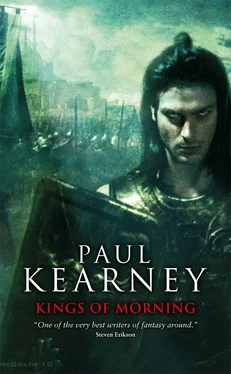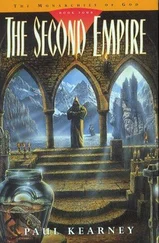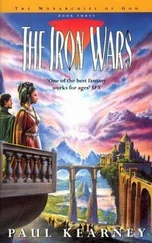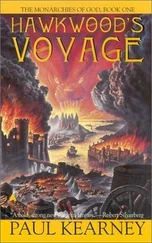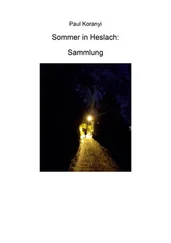Paul Kearney - Kings of Morning
Здесь есть возможность читать онлайн «Paul Kearney - Kings of Morning» весь текст электронной книги совершенно бесплатно (целиком полную версию без сокращений). В некоторых случаях можно слушать аудио, скачать через торрент в формате fb2 и присутствует краткое содержание. Жанр: Фэнтези, на английском языке. Описание произведения, (предисловие) а так же отзывы посетителей доступны на портале библиотеки ЛибКат.
- Название:Kings of Morning
- Автор:
- Жанр:
- Год:неизвестен
- ISBN:нет данных
- Рейтинг книги:4 / 5. Голосов: 1
-
Избранное:Добавить в избранное
- Отзывы:
-
Ваша оценка:
- 80
- 1
- 2
- 3
- 4
- 5
Kings of Morning: краткое содержание, описание и аннотация
Предлагаем к чтению аннотацию, описание, краткое содержание или предисловие (зависит от того, что написал сам автор книги «Kings of Morning»). Если вы не нашли необходимую информацию о книге — напишите в комментариях, мы постараемся отыскать её.
Kings of Morning — читать онлайн бесплатно полную книгу (весь текст) целиком
Ниже представлен текст книги, разбитый по страницам. Система сохранения места последней прочитанной страницы, позволяет с удобством читать онлайн бесплатно книгу «Kings of Morning», без необходимости каждый раз заново искать на чём Вы остановились. Поставьте закладку, и сможете в любой момент перейти на страницу, на которой закончили чтение.
Интервал:
Закладка:
One man, Arozian the gardener, had a stall covered with miniature trees which he kept small through constant pruning. They always drew an open-mouthed crowd from the provinces, and his stall was well known as a honeypot for pickpockets. Kurun pressed his fist to the belly of his sash as he passed, flashing a wave to the blue-faced old Juthan. There were few of his race left in Asuria. Most Juthans, slaves and free, had left or run away over the years to join their kin in Jutha under the rebel king Proxanon. Those that were left had become something of a curiosity, and one that was viewed with a certain suspicion. But here in the Long Bazaar Arozian was a fixture, and he liked to boast that the High Priest himself had made purchase from him.
A dark gateway loomed, many times Kurun’s height, wide enough for two wagons to enter abreast. It looked like a door to the underworld, and in many ways it was. This was the Slave Gate, one of the entrances to the dark intestines of the High City. The traffic passing in and out was watched over by more of the royal Honai, but these warriors were not the gleaming legendary figures who stood at the foot of the King’s Steps. They wore true battle-armour, and short stabbing spears with butts of iron which doubled as maces. Like their brothers, resplendent at the foot of the King’s Steps, they were incorruptible — unlike almost every other gate-guard in the city — and were as quick with a blow as a query. Kurun bowed his head as he shuffled past them, as did the rest of the crowd, and the hubbub of the street was dimmed, so that it seemed the Slave Gate was witness to pulsing trains of penitents intent on their sins and the dust on their sandals.
The heat and light of the sun was blocked out, and at once the smell of the Slave-City engulfed Kurun. Thousands of bodies, sweating and ill-washed and packed together. Animal ordure, soot, woodsmoke, and here and there the half-sick fragrance of perfume on a slave-girl.
Massive hanging lamps of clay added to the heat within. It was always lamplit night here, in the base of the tell. Higher up within the massive structure, stone-lined shafts were cut into the mound and admitted the light of Bel, but this was a subterranean labyrinth. No Honai here; the Great King’s elite did not soil themselves with the streaming stink of the Slave-City, but instead hufsan guards in leather cuirasses stood in pairs at intervals, bronze scimitars on their hips and steel-flecked whips in their hands. In these worn, endless corridors of flagged stone, tens of thousands toiled unceasingly in the Great King’s service, living out their lives and breeding and dying in the flame-flickered world that had been constructed by their own forbears millennia before.
Once, Kurun had feared the bottom tiers of the Slave City. This was where he had been introduced to servitude, and he vividly remembered the first time he had seen the sun cut off, and had felt his young head fill with the reek of the place. A world of caverns, it had seemed to him; a succession of nightmares. But he had been very lucky, sold up-city almost at once. He had not remained down here long enough to shun sunlight, as many slaves did. Hundreds of the Slave City’s inhabitants could no longer bear the light of Bel in their eyes. They had been made into creatures of the dark, and needed no lamp to see their way within it.
But it was not a place to wander aimlessly. There were forgotten tunnels here, old antechambers and ancient passageways which had been bricked up and forgotten as the daily concourse changed its routes, like a river shifting its bed over centuries. Parts of the Slave City had been neglected and disused for generations, and it was said that renegade slaves had made a warped life in these abandoned districts, renouncing their servitude, and they preyed upon the unwary with bestial, unimaginable appetites.
So the kitchen slaves liked to say, gathered in their quarters with the day’s work done, or drunk on palm wine in times of festival. One of the Undercooks who was Kurun’s friend, fat, lubricious Borr, liked to tell of the time he had become lost in the lower levels as a youngster, and had seen them, the dark-dwellers. They had skin white as maggots, he said, and eyes as large as eggs.
An immensely wide passage ascended ahead, the incline steep, one half stepped, the other a ramp which slaves pushed handcarts up, sweat streaming off their backs. They toiled naked, hufsan from the highlands who bore the mark of the King, not as a tattoo on their shoulders but as a brand upon their faces. At their rear, one of their own race flicked a tongue of leather at their calves, and barked at them in common Asurian, the gutter-language of the Empire, leavening the tirade with some hufsan profanity from his own mountains. The slaves strained harder. In the handcart were baskets of Oskus clams, as big as Kurun’s fist, and the massive silver sheen of river catfish, their mouths still opening and closing as they struggled, drowning in the fetid air.
Beside them was the flip side of the coin; gangs of more hufsan, rolling empty carts on the down-road before them, tugging on ropes to slow the clanking vehicles and keep them within bounds. They winked and nodded and exchanged ribaldries with their colleagues who were still ascending, and the guards raised whips at one another in salute.
Kurun felt inside his sash for the tiny, oilcloth-wrapped parcel that had occasioned his foray into the sun. Auroc the kitchen-master had entrusted him with the errand, only the second time he had ever done so, and it would not do to lose the thing now, so close to home.
Up, up, always up, the steep passageway becoming a sinuous thing, an immense hollow coil of stone within the ziggurat with passageways opening off on both sides, people joining and leaving it as they went their way about the Slave-City. This was the Silima, the Serpent Road, the main artery in the body of the ziggurat. It held the various levels together, and was the one concourse wide enough for vehicles which ran through every height of the immense structure. Many pasangs long, it was also meticulously maintained by gangs of road-slaves who cleared the detritus of passage day and night, and overseers who saw to it that traffic went smoothly.
When there were heavy crowds on the Silima, one could stand on a stone floor in the kitchens of the upper city far above, and feel the entire tell vibrate minutely under one’s feet, like some gargantuan organism, a great animal whose insides were swarming with minute parasites.
The kitchen levels were close to the top of the ziggurat. Here, the shafts opening out on the sunlit sides of the tell made the wide pillared chambers within seem dazzlingly bright after the sweating lamplight of the Slave-City. There were pullied platforms upon which entire banquets were hoisted up to the summit above, cold rooms stacked high with ice brought all the way from the Magron, corridors lined with wine-jars a man could drown in, and cages of live birds singing their hearts out in the patchworked sunlight, heedless of the filleter’s block that stood beside them.
Every possible foodstuff from across the Empire was represented here, when it was in season. Currently, woven baskets stood everywhere alive with the croaking of frogs, and such was the glut that the cooks paid no mind to thieving spit-turners who would snatch one from above the coals when they thought they were unobserved. Kurun had once been one of these grimy youngsters, and he remembered well the unending work, day and night, the furtive snatched meals, the fights, the rancid loincloths which were their only clothing, and the wit-stretching struggle to catch the eye of the cooks, to gain favour, to climb the ladder. It had taken him two years, he thought — he was not quite sure. He had seen boys kill one another for a comfortable place to sleep, their corpses tossed out in the morning without comment by the cooks, just more rubbish from the kitchens to be dropped down the garbage pits. Two years. It had marked him as deeply as war.
Читать дальшеИнтервал:
Закладка:
Похожие книги на «Kings of Morning»
Представляем Вашему вниманию похожие книги на «Kings of Morning» списком для выбора. Мы отобрали схожую по названию и смыслу литературу в надежде предоставить читателям больше вариантов отыскать новые, интересные, ещё непрочитанные произведения.
Обсуждение, отзывы о книге «Kings of Morning» и просто собственные мнения читателей. Оставьте ваши комментарии, напишите, что Вы думаете о произведении, его смысле или главных героях. Укажите что конкретно понравилось, а что нет, и почему Вы так считаете.
